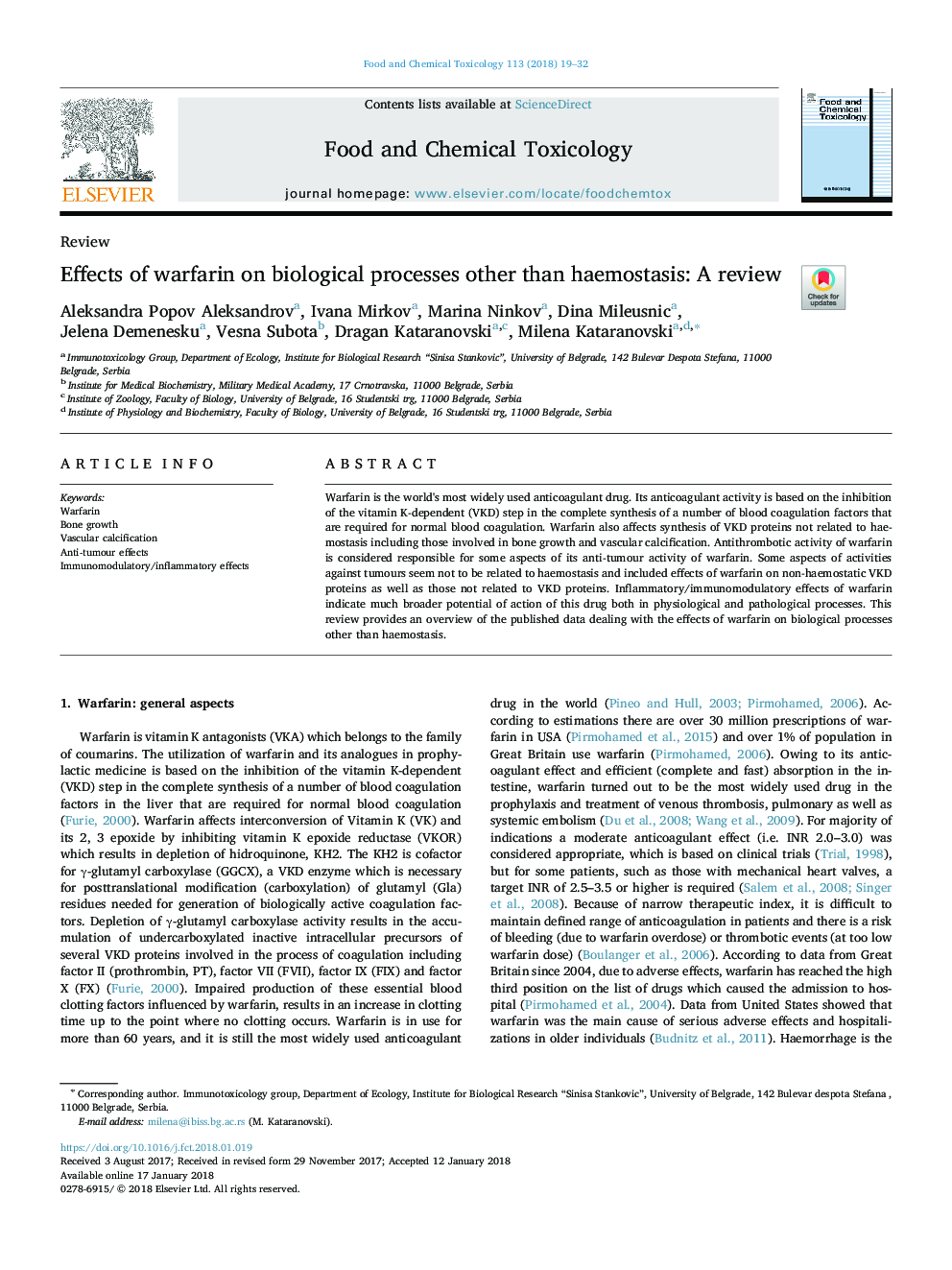| Article ID | Journal | Published Year | Pages | File Type |
|---|---|---|---|---|
| 8547909 | Food and Chemical Toxicology | 2018 | 14 Pages |
Abstract
Warfarin is the world's most widely used anticoagulant drug. Its anticoagulant activity is based on the inhibition of the vitamin K-dependent (VKD) step in the complete synthesis of a number of blood coagulation factors that are required for normal blood coagulation. Warfarin also affects synthesis of VKD proteins not related to haemostasis including those involved in bone growth and vascular calcification. Antithrombotic activity of warfarin is considered responsible for some aspects of its anti-tumour activity of warfarin. Some aspects of activities against tumours seem not to be related to haemostasis and included effects of warfarin on non-haemostatic VKD proteins as well as those not related to VKD proteins. Inflammatory/immunomodulatory effects of warfarin indicate much broader potential of action of this drug both in physiological and pathological processes. This review provides an overview of the published data dealing with the effects of warfarin on biological processes other than haemostasis.
Related Topics
Life Sciences
Agricultural and Biological Sciences
Food Science
Authors
Aleksandra Popov Aleksandrov, Ivana Mirkov, Marina Ninkov, Dina Mileusnic, Jelena Demenesku, Vesna Subota, Dragan Kataranovski, Milena Kataranovski,
